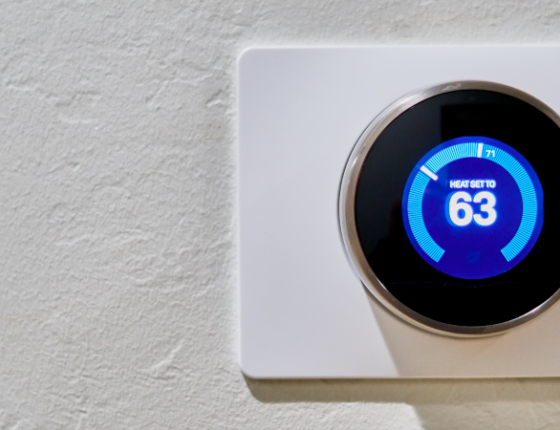Easy Home Comfort with Smart Thermostats
With the increased popularity of smart home technology, we discuss the role of smart thermostats in convenient energy savings.
As smart home technology becomes more and more popular, it is important to understand the differences and benefits of new devices over classic models and other options. One particularly notable example for comparison is the smart thermostat.
The most significant difference between these smart thermostats and others is that smart thermostats make it easy to use less energy. They are designed to make it easier for you to change the temperature in your house — thus making you more likely to do so! It is a great idea to explore smart thermostat options if you are in the market for a new thermostat.
Difference between thermostats
In houses with a classic, manual thermostat, it is up to the homeowners to set the temperature. When you have to adjust the thermostat lower while you are at work or while you sleep, it is very easy to forget to do it — many people don’t remember or don’t bother to do it at all. This leads to wasted energy all year.
A programmable thermostat allows you to set a schedule, which means that it can automatically lower or raise the temperature in your home when you leave for the day or go to sleep. When the thermostat is programmed correctly, you can save up to $180 a year in energy bills. Unfortunately, the scheduling function is complicated enough that people often give up on programming them and revert to the “hold” function, essentially using the unit as a manual thermostat. This means that they achieve little to no energy savings.
A smart thermostat is far and away the easiest and most effective option to achieve maximum energy savings. It learns your behavior — when you leave for work, return home, go to bed — and it will automatically lower or raise the temperature based on where you are and what you are doing. Additionally, a smart thermostat will notice if your schedule changes, and adjust accordingly. With extreme temperatures like those in Minnesota’s climate, these individual adjustments can really add up.
Some smart thermostats (like the Nest and ecobee models) can even sense when your house is unoccupied by using technologies like geofencing, and respond by adjusting the heating or cooling until people return.
Smart thermostats connect to your phone via an app with internet connection, which makes it simple to change thermostat settings on-the-go or to view your energy use. If you are on the way back from vacation and you want to make sure that your house is a comfortable temperature when you get home, you can simply log in to the app and adjust the temperature an hour or so in advance.
Things to keep in mind
- Check with your electric or gas provider(s) to see if they offer rebates for smart thermostats. These rebates are often for specific models, so be sure to check which thermostats are rebate-eligible before you buy.
- Most smart thermostat installation instructions are fairly straightforward, but if you are not comfortable doing it yourself, work with an HVAC contractor. Being cautious is good — you are dealing with low-voltage electricity and your heating system. If a contactor is already coming to your home, ask if installing a smart thermostat is a service they offer.
- Make sure that the smart thermostat you buy is compatible with your heating system. Specifically, make sure to check the power capability and requirements of your heating system and the thermostat, respectively. Smart thermostats usually require more power than just that provided by batteries. Usually this additional power comes from the common wire (C-wire) in your furnace or boiler. If you discover when you remove your old thermostat that you do not have a C-wire, work with an HVAC contractor to have one installed. This is generally an inexpensive addition.
Outside Resources

Questions about your home energy? Let's talk!
